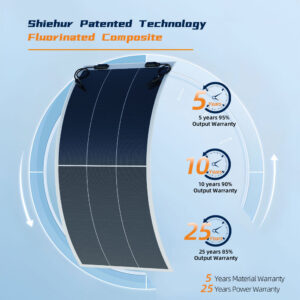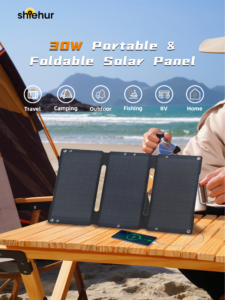How to Optimize Solar System Performance
With the growing global focus on renewable energy, solar power has become an attractive solution for reducing dependency on traditional energy sources. However, maximizing the efficiency of your solar system is critical to achieving higher energy yields, lowering electricity costs, and ensuring a faster return on your investment. In this article, we’ll explore four proven strategies to optimize the performance of your solar panels, enhancing both your financial and environmental benefits.
Why Solar System Optimization Matters
Optimizing your solar system’s performance is not just a good idea—it’s essential for ensuring you get the most from your investment. An efficient solar system produces more electricity, helping you reduce reliance on the power grid and lower your energy bills. In regions with incentives like solar feed-in tariffs, higher efficiency translates into even greater financial returns.
Beyond the economic advantages, improving solar efficiency helps reduce your environmental footprint. By generating more clean energy, you minimize the need for fossil fuels, contributing to a more sustainable future. In short, optimizing your solar system is a win for both your wallet and the planet.
4 Strategies to Optimize Solar System Performance
1. Clean Your Solar Panels Regularly
Dust, dirt, and other debris on your solar panels can block sunlight, significantly reducing their ability to generate electricity. Regular cleaning ensures your panels receive maximum sunlight, leading to optimal performance. How often you clean your panels will depend on your location and environmental conditions, but generally, it’s recommended to clean them twice a year.
- How to clean: Use water and a soft brush or sponge to gently remove debris. Avoid using harsh chemicals or abrasive materials that could scratch the surface. Early morning or late evening is ideal for cleaning to prevent thermal shock from hot panels.
2. Minimize Shading
Shading is one of the biggest factors that can reduce the efficiency of solar panels. Even small shadows can significantly lower energy output, as most solar systems are connected in series—meaning the weakest panel can limit the performance of the entire array.
To minimize shading:
- Choose a location with full sun exposure: Ensure that your panels are positioned away from obstructions like trees, buildings, or chimneys.
- Use microinverters or power optimizers: If shading cannot be avoided, these devices allow each panel to operate independently, minimizing the impact of shading on the overall system.
3. Install Reflective Surfaces
Incorporating reflective materials around your solar panels can help direct more sunlight onto the panels, particularly during the early morning or late afternoon when the sun is at a lower angle. This strategy can boost energy production, especially in locations where space constraints prevent the addition of more panels.
- Caution: Be careful not to overheat your panels, as excessive heat can reduce their efficiency. Proper ventilation and avoiding direct reflective heat onto the panels are important for maintaining optimal performance.
4. Monitor and Maintain Your Solar System
Regular system monitoring and maintenance are crucial for maintaining peak performance. Many modern solar systems come equipped with monitoring tools that allow you to track panel output and identify any performance issues quickly.
Key maintenance tasks include:
- Checking for physical damage: Inspect your panels and wiring for cracks or other wear.
- Testing electrical components: Ensure that inverters, batteries, and other system components are functioning correctly.
- Annual professional maintenance: A qualified technician should perform an annual check to ensure all parts of the system are operating efficiently.
Conclusion
Optimizing your solar system is key to maximizing energy output and financial returns. Regular cleaning, reducing shading, installing reflective surfaces, and maintaining your system through monitoring and inspections will ensure your solar panels operate at peak efficiency. By following these four strategies, you’ll enjoy greater energy savings and contribute to a greener, more sustainable future.
Implement these tips to keep your solar power system running smoothly, providing clean, efficient energy for years to come.







